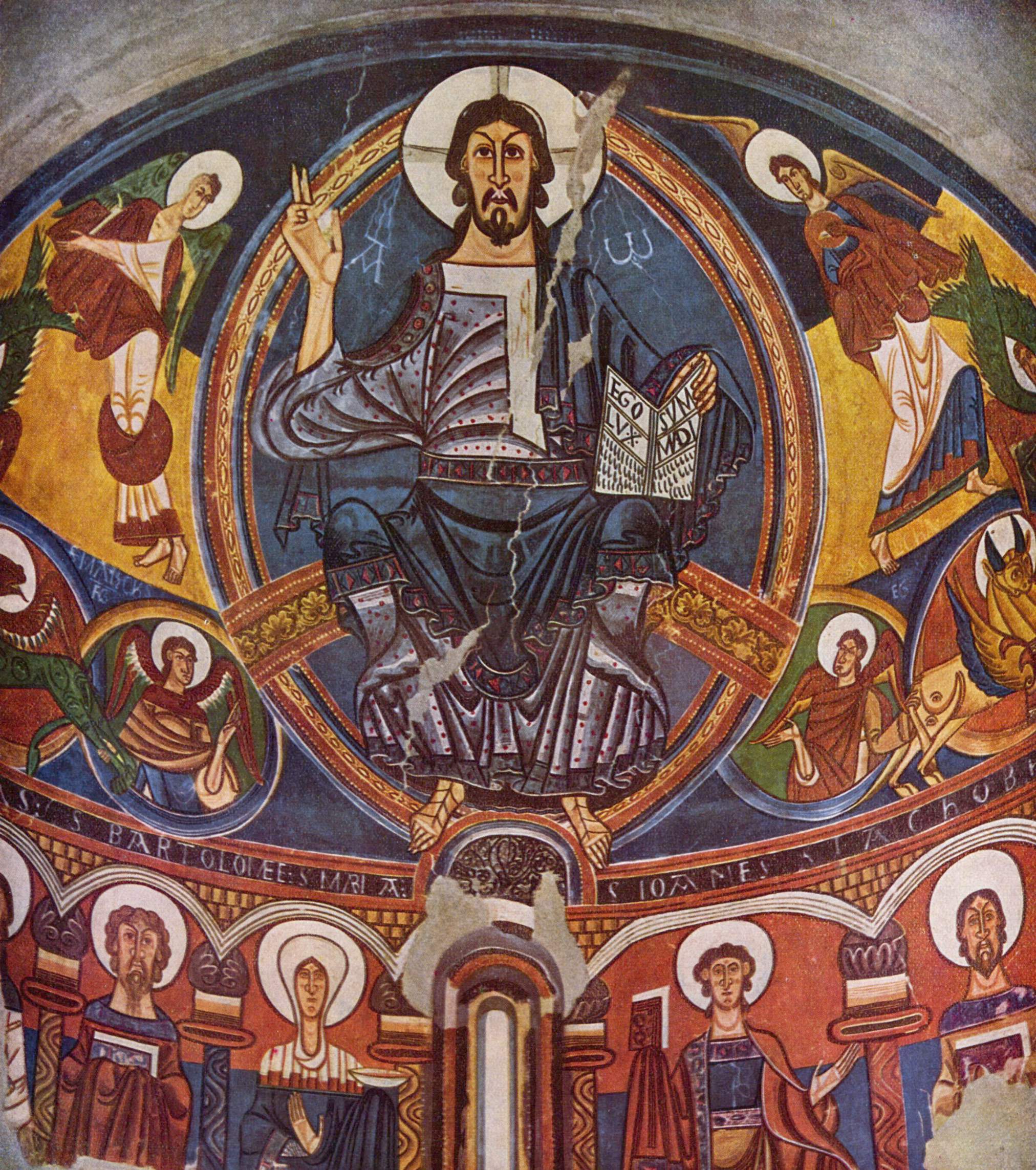A replica of the most famous work by the anonymous “Master of Taüll” is still there in the church, deep in the Pyrenees.
Lenten Campaign 2025
This content is free of charge, as are all our articles.
Support us with a donation that is tax-deductible and enable us to continue to reach millions of readers.
The church of Sant Climent of Taüll, in the Boí Valley (“Vall de Boí,” in the original Catalan) is one of the nine famous early Romanesque churches of the Catalonian Pyrenees. They are all known not only for their distinctive northern Iberian medieval architecture but also for the world-famous Romanesque mural paintings of the anonymous “Master of Taüll,” considered the greatest Catalonian artists of the 12th century, and one of the most important in all medieval Europe. His main work is this very Church of Sant Climent.
According to local ecclesiastical archives, the church itself was consecrated in 1123 by the bishop of Roda. The design of the church is classic Romanesque, with three naves separated by columns, topped by three semicircular apses (that is, the classic Romanesque arch). The main entrance is that of the south facade which, also in typical Romanesque fashion, is arched. In the apse, one now finds a faithful reproduction of the main work of the Master of Taüll, the Pantocrator, the original now being preserved in the Museu Nacional d’Art de Catalunya (MNAC).
The distinctive genius of this image lies in its magnificent use of color, as much as in its majestic sobriety, and its harmonic division of the pictorial, visual space. In fact, these are the features that made some contemporary artists, such as Pablo Picasso and Francis Picabia, draw inspiration from this image for their own work. Take a look at the original apse, now preserved in the MNAC, below:









